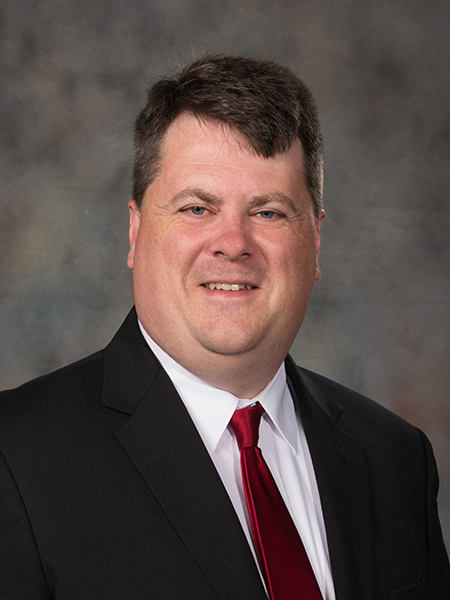
Mark Wilkins
Professor and Director, Industrial Agricultural Products Center
Though Dr. Mark Wilkins is one of the most recent additions to the Biological Systems Engineering Department faculty, he has quickly integrated himself into the BSE community. Involvement is a guiding characteristic for Mark. He seeks to involve himself at all levels of the university as well as get others involved in research, collaboration, and seeing from many perspectives.
Mark is a professor in the area of bioprocessing and food processing, holds a dual appointment in the Food Science department, and chairs several committees in both departments including BSE's graduate committee. He serves as the director of the Industrial Agricultural Products Center (IAPC).
The center assists companies and researchers with the development and commercialization of products using agricultural materials and byproducts. IAPC focuses on techniques in fermentation, enzymatic reactions, and bioprocessing that allows them to assist clients throughout the stages of product development.
IAPC takes clients from multi-state companies and industry. One current center goal that stems from the center’s involvement with the Nebraska Corn Board is to increase the percentage of corn utilized and processed into viable non-food products. Waste byproducts, such as corn fiber, that would otherwise be useless to consumers hold potential for several other types of products. Corn fiber is 10% of the corn kernel by mass, but it is not usable in food. IAPC is interested in the sugar polymers that makeup corn fiber for their potential uses beyond food products.
This research seeks to bring value to the corn harvests that agricultural producers are already generating. IAPC also wants to increase the amount of involvement that they have with Nebraska producers, which means that bioprocessing activities remain within the state rather than being sent to other facilities around the nation.
IAPC involves the NU system in its work as well. IAPC collaborates with 35 faculty in four different colleges and two NU campuses, and is constantly looking to expand its collaborations.
In the academic portion of his appointment, Mark is also interested in expanding bioprocessing with in BSE course offerings. He has created a new course that examines and designs processing equipment and scales that equipment for different facilities, while critically examining the role of heat and mass transfer in these designs.
Further plans for involving the department include expanding options for Mechanized Systems Management students in the area of processing and building other courses in potential areas including sustainable processing and new bioprocessing technologies.
These examples are only a few of the ways that Mark impacts the department every day. Graduate education, faculty governance, and other areas are making leaps under his guidance. Mark says that the benefits of being heavily involved with the university is meeting different people and seeing different perspectives on issues that affect faculty, the department, and the university, which in turn will add value to the BSE department for many years to come.